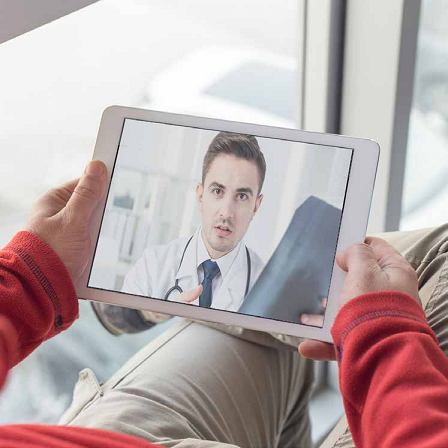A Seismic Shift
Moving from provider-driven to citizen-driven healthcare
It’s no exaggeration to say that healthcare systems across the world are struggling to keep up. An ageing population, lifestyle factors, changing public expectations, the rise in chronic diseases and scientific advances have all dramatically increased demand. Systems are straining; and the NHS is no different.

While everyone in the health service has been working hard to treat more patients and satisfy demand (with a limited public purse), this is not sustainable. There is now an important opportunity to reconsider how we as citizens view our NHS and how the system can support our health needs. A seismic shift is needed in behaviour to relieve the pressure.
A more proactive approach to healthcare
Most experts agree on the need to move from the current situation – in which the system responds to and treats illnesses – to a future state, in which wellness is proactively maintained and illness is diverted. Currently, demand for healthcare services is initiated, for the most part, at the point where we phone our GP or attend A&E when something is wrong. The shift – the tipping point – is to prevent that demand happening in the first place. We need to find opportunities to stop a visit to the GP or a dash to the hospital.
The opportunity – and the challenge – is to dramatically reduce the burden of treatment, particularly in hospitals. That’s why digital transformation is so critical. Technology will be an enabler and a catalyst for the seismic shift in citizen behaviour. People can be helped to take more ownership for their own health. It’s true that there are plenty of people looking after themselves and taking steps to stay healthy. Yet still, our cultural landscape is that as citizens and patients, we are not always empowered: we are administered to by experts who are in charge of our health and wellbeing.
Can healthcare become self-service?
Let’s look to another sector. In the digital age, we have all become our own travel agents – and virtually wiped out high-street travel agencies. We book our own flights and seats (looking at an online plan of the plane), we choose our own hotels, we put together our own packages of activity and entertainment, all based on data (together with feedback and ratings from other travellers). We take responsibility and we selfserve. Can the same happen in healthcare? With help, choice and encouragement, as citizens we can start to change our view of how we interact with health services. To do this, we need digital tools that are easy to use, that have value, and that are more effective than going in person. If, for example, I can have a video-conference call with a clinician about my daughter’s rash, then I won’t go to my GP or A&E.
When we travel, we know we can search for the cheapest seat on a plane, find out more about the country we’re planning to visit, and get details of the last flight we took. When we book a flight, we are signposted to arrange parking at the same time. Similarly, if we can get key health information on our mobiles and smart watches, we could also be signposted to things to think about or do to keep ourselves healthy – a reminder about a forthcoming hospital appointment or an offer at a local gym. I could get my occupational health check results, together with my latest blood-test that was done at a hospital, and my health and fitness app, all on the same device.
The future is bright.
Personalised medicine is around the corner. Advances in technology and genomics will enable us to take more ownership of our health, make choices and act to keep ourselves well, and understand what treatments will work for us as individuals – all drawing on rich sources of highly personalised data. Over time, we could shift our behaviours permanently, for example from not just having a flu jab but to building up our health and immunity longer term. Those kinds of relatively small-scale choices are marginal gains which, in combination, could make an enormous difference and transform healthcare commissioning and provision.